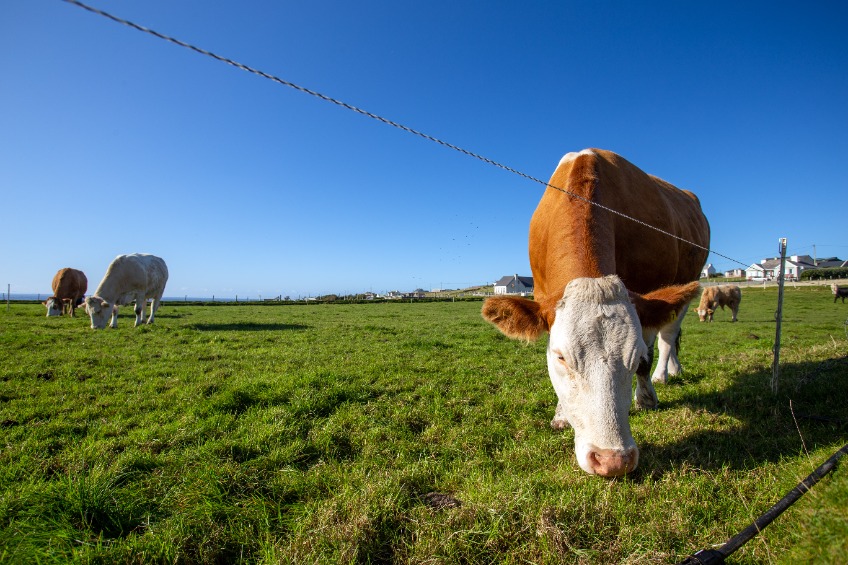
A consultation on a draft ammonia strategy - the first of its kind for Northern Ireland - has launched to take action to reduce levels of the pollutant.
The government is seeking to reduce total NI agricultural ammonia emissions by at least 30% from 2020 levels.
Launching the consultation, the Department of Agriculture (DAERA) said it was keen for anyone with an interest to participate and provide their views.
The department said it recognised that ammonia emissions had adverse effects on nature and public health, and needed to be reduced significantly in the years ahead.
Northern Ireland has 6% of the UK land area and 3% of the population, but is responsible for 12% of UK ammonia emissions, according to official figures.
Nearly all (97%) of ammonia emission in Northern Ireland come from the agriculture sector.
The draft strategy, developed under the leadership of the former DAERA Minister Edwin Poots, recognises that agriculture makes a significant contribution to the Northern Ireland economy.
However, the strategy admits that farming practices contribute to ammonia emissions, which in turn have adverse effects on nature and public health.
Dave Foster, DAERA’s Director of Natural Environment Policy said: “The draft strategy also recognises that rigorous action on ammonia is needed in the coming years.
"It is important that we find the right approach that helps our local farm businesses and rural communities thrive and be sustainable while at the same time protecting our environment.”
Northern Ireland has almost 250 sites designated for protection which are sensitive to the impacts of ammonia and nitrogen, with DAERA having legal obligations to ensure these sites are protected.
The vast majority of designated sites are currently experiencing ammonia concentrations and nitrogen deposition above the critical levels and loads at which damage to plants may occur.
Mr Foster continued: “We know that we need to take action in the coming years to reduce the levels of ammonia if we are to achieve the improved outcomes we all want to see when it comes to nature and to public health, while also supporting local farming.
“Finding the right pathway to improvement will be crucial and we are keen to have as many views as possible from as wide a cross-section of the population on the measures proposed in the strategy."
Farmers and landowners can submit their views to the consultation before the closing date of 3 March 2023.
